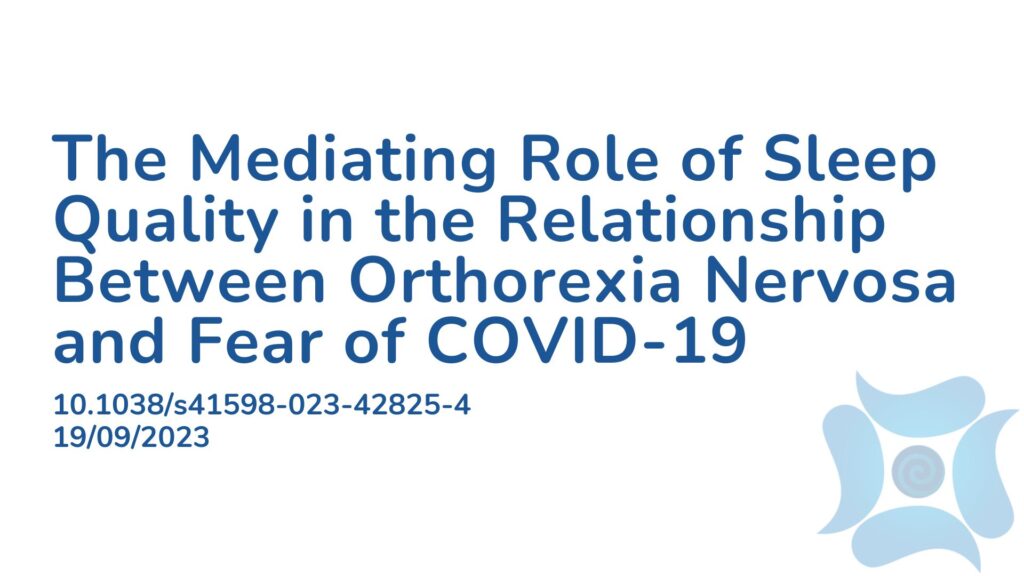Summary:
Throughout history, humans have battled infectious diseases like plagues, SARS, and Ebola. Recently, COVID-19 emerged as a global health crisis, causing the most severe impact in terms of mortality, illness, and transmission rates. Countries implemented measures like isolation, masks, vaccines, curfews, and distancing to protect public health. However, the constant COVID-19 news, lockdown uncertainties, and media reports led to emotional exhaustion, fear, depression, and anxiety. Research revealed negative behavioral changes, including thoughts of suicide, sleep problems, reduced physical activity, social media addiction, and isolation due to COVID-19 fear. Changes in eating habits, like shifting to high-calorie diets, excessive food preparation, reliance on take-out, and obsession with healthy eating (leading to orthorexia nervosa), also emerged. These behavioral shifts significantly affected physical and mental health, impacting overall quality of life. This study explores the mediating role of sleep quality in the connection between COVID-19 fear and orthorexia nervosa among Turkish adults. Conducted online from April to August 2021 with 1,130 participants, the findings showed significant links between COVID-19 fear, orthorexia nervosa, and sleep quality. The authors concluded “governments need to take the necessary precautions concerning this subject when creating action plans for possible global crisis situations that may adversely affect public health in the future.”
Abstract:
The COVID-19 (SARS-CoV-2) pandemic has jeopardized humanity worldwide and has considerably altered the healthy lifestyle behaviors of societies. This study examined the possible mediating role of sleep quality in the relationship between orthorexia nervosa and fear of COVID-19 among Turkish adults. This study used an observational and descriptive design. It was carried out online with 1,130 participants across Turkey between April and August 2021. The data were collected using a questionnaire, the Fear of COVID-19 Scale (FC-19S), the Pittsburgh Sleep Quality Index (PSQI), and Orthorexia Nervosa-R (ON-R). The participants had an ON-R mean score of 3.08 ± 0.90 and a mean PSQI score of 8.03 ± 2.80. Likewise, their mean FC-19S score was 18.24 ± 6.55. There was a significant positive correlation between the FC-19S and the PSQI (r = 0.208; p = 0.000) as well as a significant negative correlation between the ON-R and the PSQI (r = − 0.145; p = 0.000). In addition, the results of the process model analysis supported our hypotheses that the PSQI was a predictor of ON-R and that its direct and indirect effects were moderated by FC19S and the PSQI. A one-unit increase in FC-19S scores causes an average 1% increase on the ON-R scale, while it generates an 8% increase on the PSQI. It was determined that the PSQI total score caused an average of 6% increase in the ON-R scale score. The findings of this study showed that sleep quality has a mediating role in the relationship between orthorexia nervosa and fear of COVID-19 experienced by Turkish adults during the pandemic. For this reason, governments need to take the necessary precautions concerning this subject when creating action plans for possible global crisis situations that may adversely affect public health in the future.
Article Publication Date: 19/09/2023
DOI: 10.1038/s41598-023-42825-4




